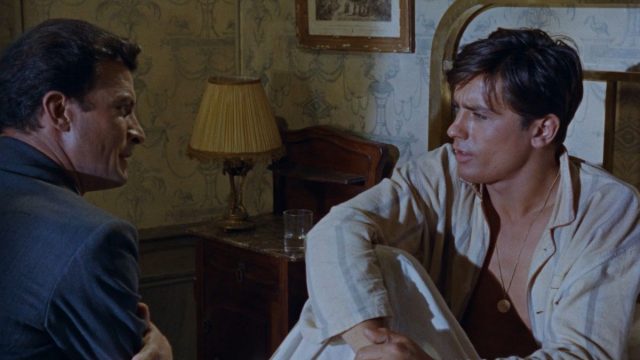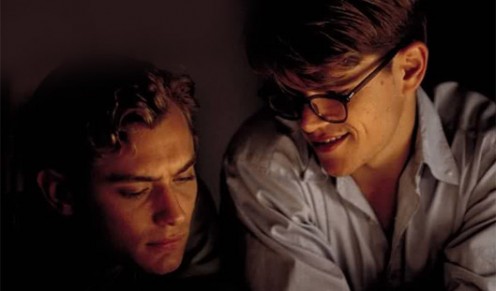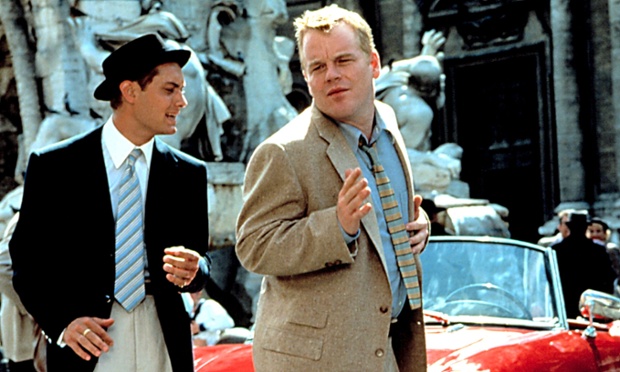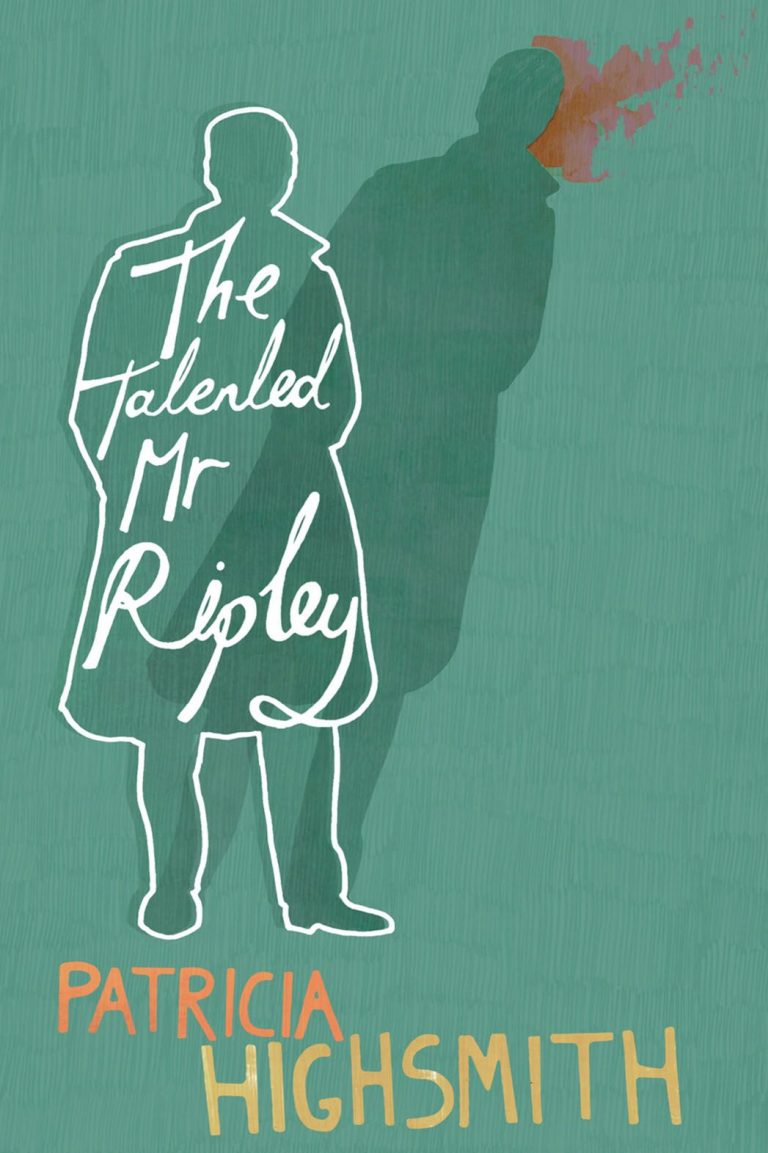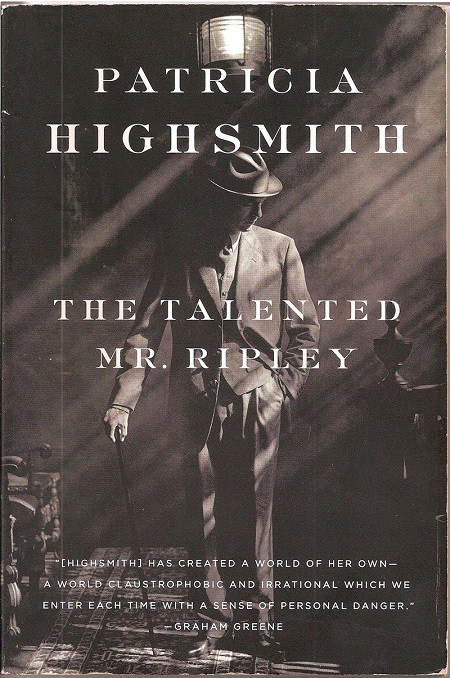He began to feel happy even in his dreary role as Thomas Ripley. He took a pleasure in it, overdoing almost the old Tom Ripley reticence with strangers, the inferiority in every duck of his head and wistful, sidelong glance. After all, would anyone, anyone, believe that such a character had ever done a murder?
What is Tom Ripley’s talent?
As he advertises himself to Dickie Greenleaf, the American expatriate whose life he will first covet and then assume, “I can do a number of things—valeting, baby-sitting, accounting—I’ve got an unfortunate talent for figures… I can forge a signature, fly a helicopter, handle dice, impersonate practically anybody, cook—and do a one-man show in a nightclub in case the regular entertainer’s sick.” But the best you can say is that some of this is slightly true. Ripley can forge signatures, but not well enough for them to consistently go undetected. He can do a passable interpretation over the phone, but could never fool a real friend in person. His demonstrated one-man show charms only half his audience. He’s been living by drifting along from low-level job to low-level job, never staying anywhere long, always convinced he’s underappreciated. As the novel begins, he’s afraid of being arrested for a piddling income tax scam he’s been running, which thus far has only netted him checks he has no way to cash. He has no charisma. He has some short-lived charm–enough to con people, but not always enough to convince them that they were never conned.
But then he kills Dickie Greenleaf and Freddie Miles; he gets away scot free in both cases and even gets away with stealing Dickie’s identity and forging Dickie’s will to leave himself all Dickie’s money.
There is no line in The Talented Mr. Ripley that describes this as succinctly as a line from Thomas Harris, who would write some Ripleys of his own: You are privy to a great Becoming.
Highsmith said she wrote this novel literally on the edge of her seat, the better to capture Ripley’s jittery, tense mind. It worked: Ripley is a coiled spring, a jack-in-the-box in everyone else’s lives. A pounce relieves the tension, but only temporarily, because the nature of secrets is that they have to go back into the box. The spring coils back up. The potential to do something, great or terrible, becomes the talent for this particular expression. What you do once becomes what you’ll do again.
No surprise, then, that The Talented Mr. Ripley becomes the Ripliad. The murderer always has it in him to turn into a series character. Richard Stark/Donald Westlake knew it when he wrote his Parker novels, but the Parker novels are about action, not talent. Parker has skill and shows it through execution; there’s no tension about whether he will or won’t. He will. From the very first, he does: “When a fresh-faced guy in a Chevy offered him a lift, Parker told him to go to hell.” Ripley has more the feel of the tragic hero of A Simple Plan, whose wife tells him, “Nobody would ever believe that you’d be capable of doing what you’ve done.”
Ripley is Hitchcock’s bomb ticking inexorably away beneath the table where two people are having a very civilized, very polite, very decorous dinner.
That’s the other line of tension Highsmith works brilliantly. Ripley’s other talent–if it even qualifies–is taste. It’s a passive virtue and Ripley is an essentially passive person: his whole complaint, such as it is, is that life has given things to Dickie and not given them to him. He has no interest in doing anything that would earn him money; even the opportunity to commit fraud and murder has to practically fall into his lap. He isn’t interested in work of any kind. He likes art but has no real use for artists, not at this point in his career–he dismisses Freddie Miles as a “self-styled” playwright “because he had written only two plays, and neither had seen Broadway.” This is an intensely class-conscious novel. Ripley loves art because not gratia artis but because it is a password. All he cares about is having money to spend well:
He loved possessions, not masses of them, but a select few that he did not part with. They gave a man self-respect. Not ostentation but quality, and the love that cherished the quality. Possessions reminded him that he existed, and made him enjoy his existence. It was as simple as that. And wasn’t that worth something? He existed. Not many people in the world knew how to, even if they had the money. It really didn’t take money, masses of money, it took a certain security.
What he loathes more than anything is a kind of middle-class heartiness and lower-middle-class bonhomie. That was the world he was born into, and he can’t access it, he’s simply not the type. Easier, then, to covet what can he thinks he can actually acquire: the money and elegance to make his standoffishness romantic and his anxiety the stuff of cocktail party conversations.
He believes class is why he hates Marge, Dickie’s quasi-girlfriend, but what he’s really repeatedly horrified by is her womanhood–not delicate enough to qualify as high-class femininity, but a solid, earthy association of bras and staid sex and conventional morality. (Paltrow is completely miscast, too innately willowy and ethereal; she and Jude Law look like movie stars when they need to look like a careless Adonis and a slightly thick-waisted girl next door, someone ordinary made grotesque by Ripley’s resentment.) He is disgusted by the solidity of her, by her repeated insistence on being there, taking up space, taking up attention. She is everything he wants Dickie not to want, to the point where it’s a huge betrayal to him that Dickie chooses to buy a refrigerator, which Marge is allowed to share, instead of spending the money on a trip Ripley could take with him. Once again, money isn’t money, it’s just a way of getting exactly–and only–what he wants.
Dickie, by contrast, budgets carefully–for all Tom’s boasting, Dickie might be the one with the actual head for figures, attentive to his income in a way Tom can’t like, because it’s an attention that doesn’t benefit him. He’s similarly impatient with Dickie’s default noblesse oblige of tipping lavishly and handing out money to beggars: can’t he see that it should only be spent on symbols?
He would like to steal Dickie’s manner, if he could, but failing that, he’ll settle for the possessions, the external things that make him real, since he can never quite cultivate Dickie’s own careless upper-class sense of what’s worth bothering with and what isn’t. He can see most of the differences–he knows that Dickie’s Italian grammar is sloppy, that Dickie prides himself on its sloppiness, and that somehow that is important–but he can’t escape them. He can never be natural. He’s his own forged work of art: a carefully-maintained portrait of a certain mood.
But The Talented Mr. Ripley isn’t Hannibal. Ripley is not the apotheosis of his own aesthetic–his crimes aren’t perfect expressions of taste but ugly aberrations, troublesome even to him, and constantly threatening to destroy his elegant, civilized world at the same time as they make his presence in it possible. The later Ripley novels move more in the direction of “murder considered as one of the fine arts,” but here, Ripley still doesn’t know that he can get away with it. Not quite yet. He’s nervous; this is something he does so that he can later do nothing, just as he has always wanted.
Ripley strives to represent his culture, but he doesn’t–he’s no Patrick Bateman either–so he isn’t symptomatic of anything but himself. That’s what makes the novel so immersive. It is probably the book I have read more than any other–go ahead, fear me–and that’s mostly because Ripley’s perspective is compelling and seductive. Ripley, more than Hannibal, leads me to temporarily confuse taste with morality, to live so totally in Tom’s feverish judgments that I buy into them. When Tom complains to Marge about a party they’ve been to, substituting in the objection that everyone asked them about Dickie (missing and presumed dead), Marge points out that no, they didn’t; it was the chic party Tom liked where everyone speculated incessantly about Dickie.
Tom lifted his head as he walked and said nothing. It was the class of people he despised, and why say that to Marge, who was of the same class?
In a way, he’s the most modern criminal, hemmed in with self-diagnosis and self-justification. When he recounts his failures, they’re always someone else’s fault. He doesn’t look for ways to change, he only looks for the causes of his behavior so he can better define himself to himself: he doesn’t want to be stopped, he wants to be understood. He’s the antecedent of Hannah Horvath on Girls as well as of Hannibal Lecter–”I could fall asleep in my own vomit listening to you talk about how you bruise more easily than most people,” a character once says to Hannah, and it could just as easily be said to Tom, the obsessive recounter of himself, the brooder. His monstrousness isn’t rooted in sadism or brutishness but in anxiety, envy, and obsession. There’s a horror in Tom’s weakness. It’s an old-fashioned view of a new-fangled man–all the insight and psychoanalysis in the world can’t make Ripley any less Ripley, all it can do is teach him to justify himself.
This is the first piece of art that taught me that I was capable of murder.
It’s Tom’s neuroticism that prepares him for what he becomes. He is used to obsessively thinking through how people will react to him, used to feeling victimized, used to living in a fantasy world–so used to it, in fact, that he’s disconcerted to realize later that yes, he’s concretely, indisputably done these things:
Those two other times were facts, not imagination. He could say he hadn’t wanted to do them, but he had done them. He didn’t want to be a murderer. Sometimes he could absolutely forget that he had murdered, he realized. But sometimes–like now–he couldn’t. He had surely forgotten for a while tonight, when he had been thinking about the meaning of possessions, and why he liked to live in Europe.
The closest Tom comes to morality is, of course, in retrospect rather than in action, and there’s a tremendous wistfulness to it even as there is a pitch-black streak of humor:
“Thanks,” Tom said. “I’d better stay by myself a while longer. I miss my friend Dickie, you know. I miss him terribly.” He was suddenly near tears. He could remember Dickie’s smiles that first day they began to get along, when he had confessed to Dickie that his father had sent him. He remembered their crazy first trip to Rome. HE remembered with affection even that half hour in the Carlton Bar in Cannes, when Dickie had been so bored and silent, but there had been a reason why Dickie had been bored, after all: he had dragged Dickie there, and Dickie didn’t care for the Côte d’ Azur. If he’d only gotten his sightseeing done all by himself, Tom thought, if he only hadn’t been in such a hurry and so greedy, if he only hadn’t misjudged the relationship between Dickie and Marge so stupidly, or had simply waited for them to separate of their own volition, then none of this would have happened, and he could have lived with Dickie for the rest of his life, traveled and lived and enjoyed living for the rest of his life. If he only hadn’t put on Dickie’s clothes that day–
“I understand, Tommie boy, I really do,” Peter said, patting his shoulder… “I’d really think something was the matter with you if you didn’t break down like this,” Peter said sympathetically.
Even in the moment of his searching regret, Tom looks inside himself and finds the wish that his plans had gone differently–not that he had not killed Dickie, but that he had not annoyed Dickie to the point where the only way to continue enjoying Dickie’s life was to kill him and take it. He regrets the bungling of the first plan, not the success of the second. He finds no real irony in accepting Peter’s consolation.
It’s an introverted, narcissistic, self-congratulatory process of damnation. Each time I read it, I find myself understanding each step Ripley goes through, each poisonous rationalization. No author is as good at writing contempt, whether that’s Ripley’s constant seethe around Marge or the awful magnifying-glass glare of someone’s growing distaste for Tom (something PSH unsurprisingly got right in his small role as Freddie in the movie: “Tommy, how’s the peeping?”). Highsmith makes social discomfort and anxiety feel oppressive enough that I want Ripley’s exit from it–my exit from it–as much as Ripley does. Murder to self-medicate: anything to stop feeling like this and to make sure I never feel like this again.

